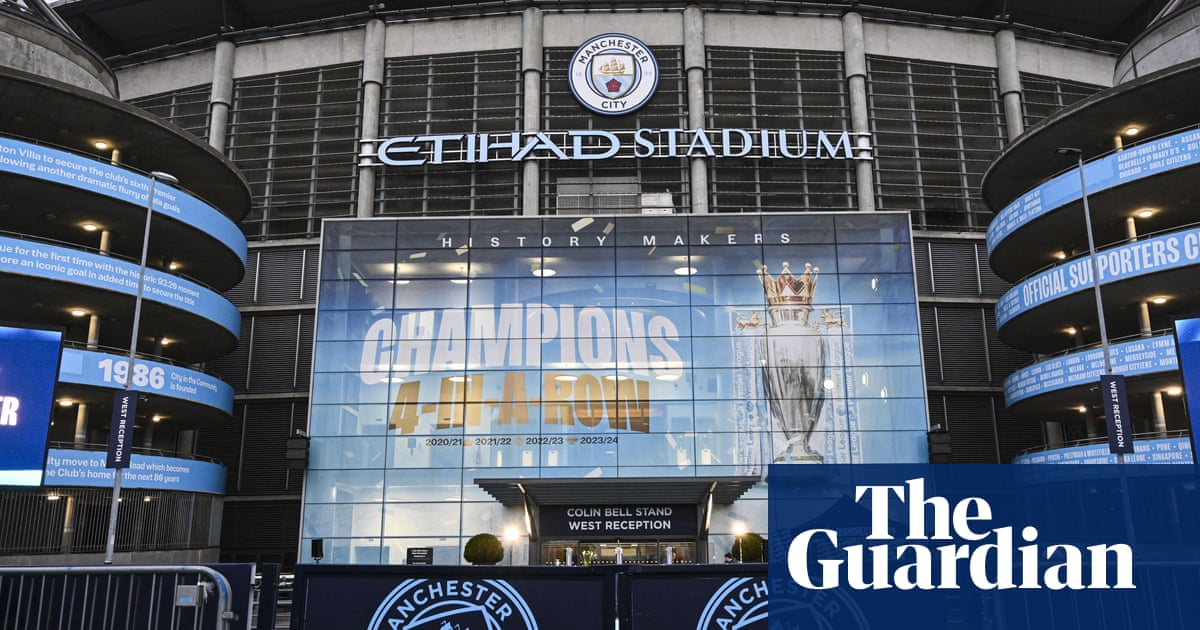Manchester City andParis Saint-Germainwill face no action from the European Commission after allegations they breached EU competition law. La Liga’s president, Javier Tebas, had filed complaints about the clubs’ alleged use of state resources under the EU’s foreign subsidies regulation.
Tebas alleged in his submission in July 2023 that City and PSG receive resources under non-market conditions from the governments of Abu Dhabi and Qatar respectively, disrupting markets by enabling them to spend more than their rivals on players and coaches, and that the clubs obtain sponsorship income at levels that do not align with fair market value. The clubs denied the allegations and pointed to their accounts as proof of no wrongdoing. They also claimed Tebas had a history of attacking them owing to envy of their success and financial resources.
Sources with knowledge of the commission’s preliminary assessment of Tebas’s complaints have indicated a formal investigation will not take place. The commission has limited resources to allocate to investigations. One source in Brussels said it tended to take up complaints that have the potential to develop into test cases with significant implications across different sectors. Although elite clubs breaking European football rules would fit that, the Guardian has been told La Liga’s submission provided insufficient evidence of rule breaking. Linking City’s and PSG’s commercial deals with companies related to the Abu Dhabi and Qatar governments to state subsidy regulations is not enough to meet the investigatory threshold, a source said.
The cost of investigating City and PSG, and the resources both clubs could commit to defending themselves, may be other factors in the commission’s thinking. The Premier League spent three years investigating alleged breaches of its financial fair play rules by City before issuing more than 130 charges against themin February 2023. An independent commission heard what promises to be a seismic case last autumn, but more than five years since the start of the investigation the verdict has not been delivered. City have denied wrongdoing.
The commission declined to comment beyond a statement it issued in February, when it confirmed it was assessing submissions regarding football clubs. “The commission may examine information regarding any alleged foreign subsidies distorting the internal market, in any economic sector, including sports,” it said. “However, the commission cannot comment on ongoing assessments.”
Tebascaused outrage at Cityin February when he compared their financial management to that of the disgraced US energy company Enron, which was responsible for one of the biggest corporate bankruptcies after widespread fraud in 2001. Club sources strongly rejected his claims but City have not responded publicly.
Tebas said at the Financial Times Business of Football summit in February: “City have a lot of companies in their group which lie outside the City Football Group structure, extra companies where they put their expenses. These other companies lose the money but not the club itself. We have reported them to the European Union [sic]. We have the facts and figures.”
Sign up toFootball Daily
Kick off your evenings with the Guardian's take on the world of football
after newsletter promotion
City, PSG and La Liga declined to comment.
